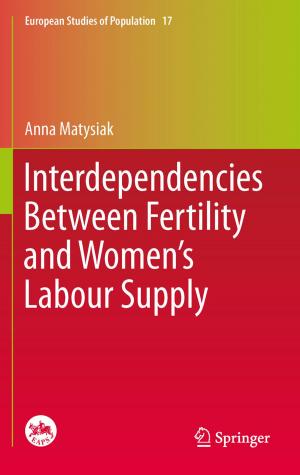Dynamics and Characterization of Marine Organic Matter
Nonfiction, Science & Nature, Science, Earth Sciences, Oceanography| Author: | ISBN: | 9789401713191 | |
| Publisher: | Springer Netherlands | Publication: | March 9, 2013 |
| Imprint: | Springer | Language: | English |
| Author: | |
| ISBN: | 9789401713191 |
| Publisher: | Springer Netherlands |
| Publication: | March 9, 2013 |
| Imprint: | Springer |
| Language: | English |
Over the past decade the scientific activities of the Joint Global Ocean Flux Study (JGOFS), which focuses on the role of the oceans in controlling climate change via the transport and storage of greenhouse gases and organic matter, have led to an increased interest in the study of the biogeochemistry of organic matter. There is also a growing interest in global climate fluctuations. This, and the need for a precise assessment of the dynamics of carbon and other bio-elements, has led to a demand for an improved understanding of biogeochemical processes and the chemical characteristics of both particulate and dissolved organic matter in the ocean.
A large amount of proxy data has been published describing the changes of the oceanic environment, but qualitative and quantitative estimates of the vertical flux of (proxy) organic compounds have not been well documented. There is thus an urgent need to pursue this line of study and, to this end, this book starts with several papers dealing with the primary production of organic matter in the upper ocean. Thereafter, the book goes on to follow the flux and characterization of particulate organic matter, discussed in relation to the primary production in the euphotic zone and resuspension in the deep waters, including the vertical flux of proxy organic compounds. It goes on to explain the decomposition and transformation of organic matter in the ocean environment due to photochemical and biological agents, and the reactivity of bulk and specific organic compounds, including the air-sea interaction of biogenic gases.
The 22 papers in the book reflect the interests of JGOFS and will thus serve as a valuable reference source for future biogeochemical investigations of both bio-elements and organic matter in seawater, clarifying the role of the ocean in global climate change.
Over the past decade the scientific activities of the Joint Global Ocean Flux Study (JGOFS), which focuses on the role of the oceans in controlling climate change via the transport and storage of greenhouse gases and organic matter, have led to an increased interest in the study of the biogeochemistry of organic matter. There is also a growing interest in global climate fluctuations. This, and the need for a precise assessment of the dynamics of carbon and other bio-elements, has led to a demand for an improved understanding of biogeochemical processes and the chemical characteristics of both particulate and dissolved organic matter in the ocean.
A large amount of proxy data has been published describing the changes of the oceanic environment, but qualitative and quantitative estimates of the vertical flux of (proxy) organic compounds have not been well documented. There is thus an urgent need to pursue this line of study and, to this end, this book starts with several papers dealing with the primary production of organic matter in the upper ocean. Thereafter, the book goes on to follow the flux and characterization of particulate organic matter, discussed in relation to the primary production in the euphotic zone and resuspension in the deep waters, including the vertical flux of proxy organic compounds. It goes on to explain the decomposition and transformation of organic matter in the ocean environment due to photochemical and biological agents, and the reactivity of bulk and specific organic compounds, including the air-sea interaction of biogenic gases.
The 22 papers in the book reflect the interests of JGOFS and will thus serve as a valuable reference source for future biogeochemical investigations of both bio-elements and organic matter in seawater, clarifying the role of the ocean in global climate change.















